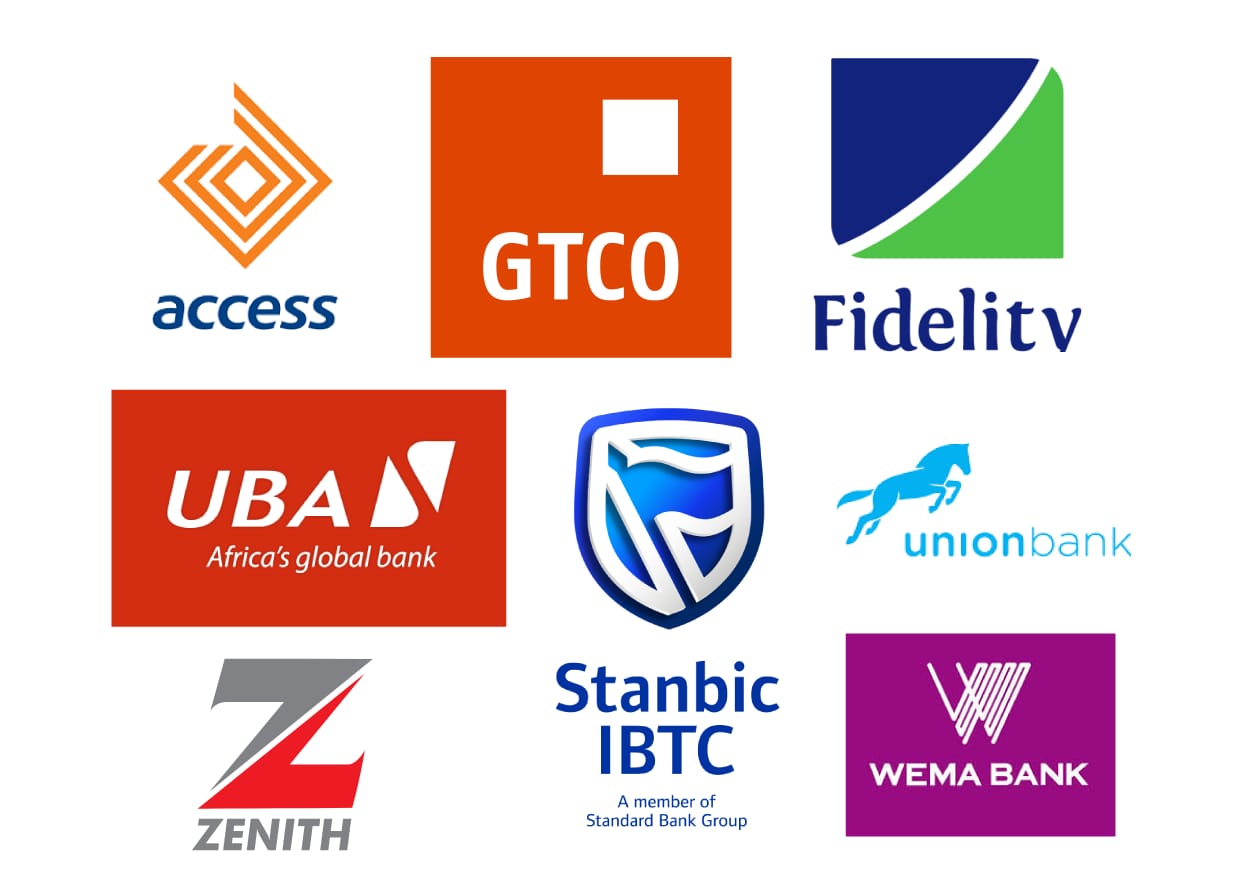Business
Nigerian Banks’ Recapitalization: The Pathway and The Hurdles
Published
4 weeks agoon
By
Marcel Okeke
Effectively, the recapitalization process for Nigerian banks under the Olayemi Cardoso leadership of the Central Bank of Nigeria (CBN) commenced on Monday, April 1, 2024. According the CBN’s circular on the latest round of minimum capital requirement for banks in Nigeria (issued on March 28, 2024), “All banks are required to meet the minimum capital requirement within a period of 24 months, commencing from April 1, 2024 and terminating on March 31, 2026.” In this upward review of banks’ minimum capital, the apex bank (in the circular) said “The prevailing macroeconomic challenges and headwinds occasioned by external and domestic shocks have underscored the need for banks to raise and maintain adequate capital to enhance their resilience, solvency and capacity to continue to support the growth of the Nigerian economy.” The apex bank therefore mandated minimum capital of N500 billion, N200 billion, and N50 billion for commercial banks with international, national and regional licenses respectively. It also raised the capitalization baseline for merchant (N50 billion) and non-interest banks (national: N20 billion; regional: N10 billion).The CBN specified that minimum capital for existing banks should comprise only paid-up capital and share premium; and for proposed banks (new banking license applications after April 1, 2024), the paid-up capital should meet the new (capital) requirement.
However, the apex bank said “For the avoidance of doubt, the new capital requirement shall not be based on shareholders’ funds; and additional Tier-1 capital shall not be eligible for the purpose of meeting the new requirement.” These, by implication, mean that the retained earnings of the banks (over the past years) shall not be allowed to form part of the new minimum capital.According to Investopedia, retained earnings are the cumulative net profits of a company after accounting for dividend payments. It captures the fact that, because those earnings were not paid out to shareholders as dividends, they were instead retained by the company. Yet, the apex bank, in its circular, definitively rules out deploying such funds (retained earnings) to meeting the latest minimum capital. This, therefore, constricts the elbow room and options available to the banks in pursuit of the new capital base within the next two years.According to the reports filed by some banks with the Nigerian Exchange Limited (NGX), most of them have huge retained earnings. Indeed, 12 of the banks, including Access Holding, FBN Holdings, FCMB Group, Fidelity Bank Plc, Stanbic IBTC, Zenith Bank Plc, United Bank for Africa, Sterling Financial Holdings, Guaranty Trust Holding Company Plc, Wema Bank, Polaris Bank and a non-interest bank, Jaiz Bank have an estimated N4.8 trillion in their retained earnings. This huge sum, however, is not available to them as they scout for fresh funds to meet the mandated capital. Truly, in line with the CBN guidelines, the options open to the banks would include injection of fresh equity capital through private placements, rights issue and/or offer for (public) subscription. The banks could opt for mergers & acquisitions (M & As) and/or choose the downgrade or upgrade of license authorization. For banks with international authorization, the entire local and global financial markets are available to them in mustering the new capital. Thus, while some would be exploring the local market, others would go afield via issuance of Eurobonds and private placements to attract even discerning foreign investors.However, the private placement path is usually subject to detailed scrutiny of the regulatory authorities because it is often the pathway for injecting illicit funds into businesses via bonds/equity purchase. Private placement (after all) is where a business sells corporate bonds or shares to investors without offering them for sale on the open market. The banks, in seeking for funds, would reach out to a select group of local and foreign investors; this time around, the CBN has indicated its stance to thoroughly scrutinize investments coming from all sources.On the other hand, however, given the consistent high returns and earnings recorded by Nigerian banks even in hard times, rights issues and public offers present veritable paths for raising fresh funds for them. Whether gauged by (worth) of dividend payouts or shareholder value appreciation over the years, most of the publicly quoted banks have attained premium grades in the NGX; and remained highly attractive to investors.It should also be pointed out that the stellar performances of the NGX in terms of (general) returns/yield on investment vis-à-vis other African/emerging markets exchanges recommends it as a veritable platform for raising the four or five trillion Naira the CBN directive would entail. The NGX with a market capitalization of about N60 trillion currently, is a leading integrated market infrastructure provider in Africa, servicing the largest economy on the continent. It therefore possesses the breadth and depth necessary to absorb the financial pressure that sourcing of funds for the ongoing recapitalization of banks in Nigeria would engender.Also, the 24 months deadline for the current recapitalization provides ample time for banks to approach the market with their bouquet of offerings. This is unlike about 20 years ago when the last recapitalization took place (under Prof. Charles Soludo as CBN Governor) in a matter of eighteen months; and saw the number of banks shrinking from about ninety to only twenty-five.
This time around, with segregated (new) minimum capital for different categories of banks, each would utilize its unique selling points (USPs) and source for funds. For all these and pride of identity/ownership, there may not be many M & As in achieving the new minimum capital by banks. Howsoever, the emerging banks by March 31, 2026, would likely face the reality of dilution of returns for shareholders. In search of funds in the ongoing recapitalization, many of them could inadvertently have generated bad risk assets or may have engaged in high-risk behaviors to deploy additional liquidity. In the end, there is also the possibility of high industry concentration—as current major shareholders retain/expand their grip—creating an oligopolistic market. The apex bank, from all indications, is already out to pre-empt this eventuality—especially in its effort to position Nigerian banks to effectively play their role in the transmission mechanism.
Finally, in the long-term, the strengthening of the banks via fresh capital is intended to fit them into critical role in the building of a one trillion dollar economy by 2030 as proposed by the President Tinubu administration. The recapitalized banks are most likely to emerge stronger and more resilient entities—able to fund big ticket transactions that Nigeria’s infrastructure financing really require. The ‘new’ banks would also then be better equipped to broadly fund the growth and development of the real sector, and eliminate myriads of Government ‘interventions’ with their innumerable drawbacks.All said, the potential influx of capital into the Nigerian (domestic) economy through offshore capital-raising endeavors of the banks in the next two years could be the wand to effectively jumpstart the economy. Favorable ratings and high global rankings of most Nigerian banks as well as their performance indicators over the years fully present them as attractive prospective investees. Collectively, therefore, their fresh capital injection drive has great potential to stimulate the currently comatose economy. All things being equal!The author, Okeke, a practising Economist, Business Strategist, Sustainability expert and ex-Chief Economist of Zenith Bank Plc, lives in Lekki, Lagos. He can be reached via: [email protected]
Trending

 Health & Fitness7 days ago
Health & Fitness7 days agoMalaria Vaccines in Africa: Pastor Chris Oyakhilome and the BBC Attack

 Aviation1 week ago
Aviation1 week agoNSIB begins investigation into Dana Air after crash-landing incident

 Aviation1 week ago
Aviation1 week agoJust in: Dana airline crash lands in Lagos

 Aviation1 week ago
Aviation1 week agoJust In: Dana Air plane crash-lands in Lagos

 Aviation7 days ago
Aviation7 days agoJust in: FG suspends all Dana Air operations

 Inspirational6 days ago
Inspirational6 days agoPastor Chris Oyakhilome: A Healing Minister Dedicated to Enhancing Public Health

 Featured5 days ago
Featured5 days agoGov, Abiodun appoints Chess master, Onakoya sports ambassador

 Crime5 days ago
Crime5 days agoVandalism: Osun water corporation appeals to residents

